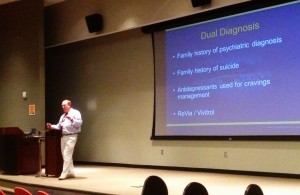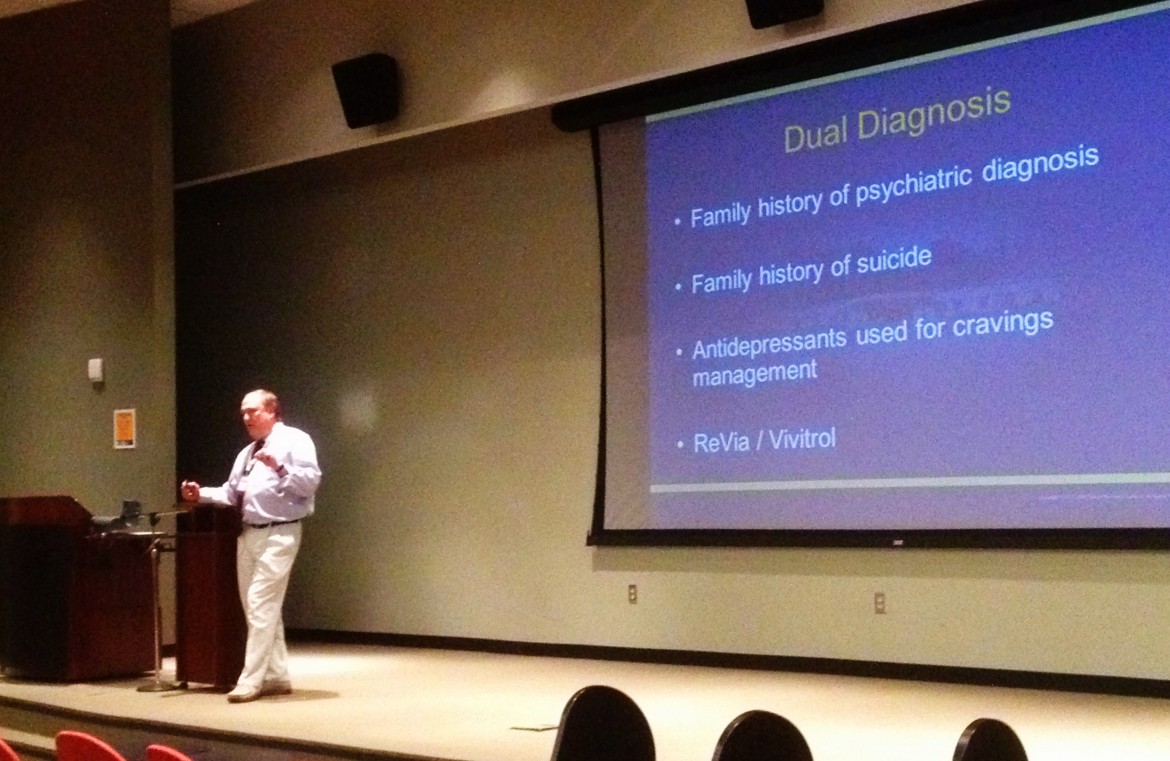
Michael Fishman
At the National Collegiate Recovery Conference Wednesday at Kennesaw State University, Michael Fishman, Director of the Young Adult Program at Talbott Recovery Campus in Atlanta, neatly summed up everything he had learned in 22 years of treating addiction in young adults. The recurring theme of his keynote address: It’s complicated.
“Most young adults are generally poly-substance abusers,” he said.
They aren’t just using marijuana; they’re also drinking, Fishman says. It’s not just opioids, it’s opioids and anti-depressants or any other combination. And that complicates the picture for doctors trying to get to know their patient’s true diagnosis.
“The drugs and alcohol may mask the underlying pathology,” Fishman said. Withdrawal symptoms, he added, “cloud the picture,” as do toxicity and detox.
Additionally, many young adults suffering from addiction are also suffering from mental illness of some kind, what Fishman calls “dual-diagnosis.” Depression and anxiety are common in substance abusers and the addiction may begin as an attempt to self-medicate, which Fishman says doesn’t work.
“Ask any young person who self-medicates how that’s working out for them,” he said with a laugh.
The three-day National Collegiate Recovery Conference was hosted by Kennesaw State University's Center for Young Adult Addiction and Recovery and featured addiction specialists from college campuses across the country.
At a separate address Thursday, John F. Kelly, Program Director of the Addiction Recovery Management Services at Massachusetts General Hospital, echoed Fishman’s assessment.
“Young adults,” he said, “have the highest rates of co-occurring psychiatric problems.”
According to Kelly, who is also a consultant to the White House Office of National Drug Control Policy, this is a serious cause for concern because of the impacts not only on the patient, but also on society.
“Drugs and alcohol account for more than $500 billion in economic impact,” he said. “It costs more than heart disease.”
In fact, he said, excessive alcohol consumption alone costs the nation $2 per drink, citing a 2011 report from the Centers for Disease Control.
Substance abuse in young adults is a systemic problem, Fishman said, leading to changes in the brain.
“Alcohol use disorder is associated with abnormalities in the pre-frontal cortex,” he said, the part of the brain responsible for decision-making and moderating social behavior.
Additionally, he said, “drinking at an early age impairs maturation.”
When asked by the audience which drugs he saw abused the most, Fishman said opioids — prescription drugs such as Oxycontin, hydrocodone, and roxicodone and illicit drugs such as heroin.
“Eighty percent of what I see is opioid dependency,” he said. “It’s rampant.”
He added that often young people become addicted to prescription opioids but when they become too expensive they seek out cheaper alternatives, such as heroin.
Abuse of prescription drugs by young adults, he added, “is an epidemic right now.”
Treatment is imperative and should include a specific and consistent structure, Fishman said. Also important is family involvement.
“Parents are often afraid if they set boundaries they [their children] will run away,” Fishman said. Young adults “need a sense of family support,” not the “potential for sabotage.”
Photos: JJIE.org
